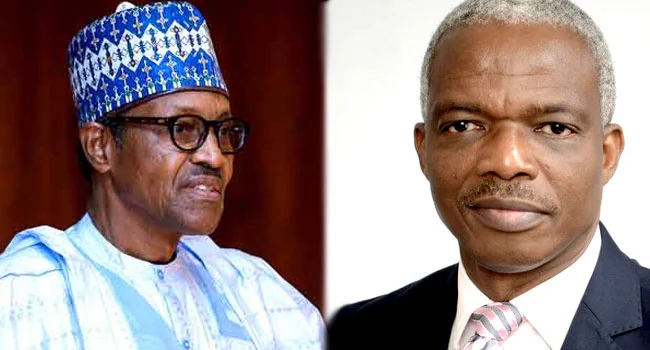On January 4, 2022, President Muhammadu Buhari appointed Dr. Doyin Salami as his Chief Economic Adviser (CEAP), a significant move less than 17 months before the end of his presidency, as announced by Special Adviser on Media and Publicity, Femi Adesina.
Salami’s Role and Responsibilities
Dr. Salami, previously Chairman of the Presidential Economic Advisory Council (PEAC) since 2019, is tasked with addressing domestic economic challenges, monitoring national and international trends, and developing policies to promote macroeconomic stability, growth, job creation, and poverty alleviation.
His role involves providing direct economic counsel to the President, a position distinct from his prior advisory capacity with the PEAC.
A Seasoned Economist
Born in 1963, Dr. Salami, aged 59 at the time of his appointment, holds a 1989 doctorate in Economics from Queen Mary College, University of London, along with a BSc (1984) and MSc (1985) from the same institution.
He serves as Managing Director and Head Markets Practice at KAINOS Edge Consulting Limited and is a Senior Fellow/Associate Professor at Lagos Business School (LBS), Pan-Atlantic University, where he leads sessions on the Economic Environment of Business.
His research interests include corporate finance, macroeconomic policy, corporate competitiveness, risk management, and small and medium enterprises (SMEs).
Salami’s extensive experience includes serving on the Central Bank of Nigeria’s Monetary Policy Committee (MPC) from 2010 to 2017, the Federal Government’s Economic Management Team (EMT) starting in 2009 under President Yar’Adua, and as Vice-Chair of the 2015 Buhari Transition Committee.
He is also a member of the International Monetary Fund’s Advisory Group for Sub-Saharan Africa (AGSA) and the Nigerian Economic Summit Group (NESG) Board, where he co-chaired the 2009 Nigerian Economic Summit.
Additionally, he has consulted for organizations like the Department for International Development (DFID), World Bank, United Nations Industrial Development Organisation (UNIDO), and USAID.
Context and Controversy
The appointment, the first of its kind under Buhari’s administration since 2015, comes amid Nigeria’s economic challenges, including high inflation (forecast at 15% for 2021), a weak naira, rising food costs, and two recessions during Buhari’s tenure.
Critics, such as David Adonri, argue that Salami’s free-market economic philosophy contrasts with Buhari’s interventionist policies, such as border closures and fuel subsidies, which Salami previously criticized as unsustainable.
Adonri suggested the appointment might be “window-dressing,” questioning whether Buhari would heed Salami’s advice given his limited influence as PEAC Chairman.
Professor Ken Ife, however, noted that Salami’s new executive role grants him greater authority compared to the part-time advisory PEAC position, potentially enabling more direct policy impact.
The timing, with less than 17 months left in Buhari’s term, raises questions about the appointment’s effectiveness, as previous presidents like Obasanjo, Yar’Adua, and Jonathan appointed CEAPs at the start of their tenures.
Nigeria’s Economic Challenges
Salami assumes the role at a critical juncture, with Nigeria facing a 23% unemployment rate in 2020, a 97.7% debt service-to-revenue ratio in early 2021, and millions entering poverty. His prior critiques of Nigeria’s unsustainable debt and border closure policies suggest a focus on liberalization and cost reduction to enhance competitiveness. Whether he can align his free-market approach with Buhari’s governance style remains a key question.
Looking Ahead
Dr. Salami’s appointment signals an intent to address Nigeria’s economic woes, but its late timing and philosophical differences with the administration may limit its impact. His expertise and track record position him to propose robust policies, yet success will depend on the government’s willingness to adopt his recommendations in the final stretch of Buhari’s presidency.






